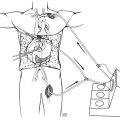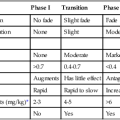Stress is a common part of life, but did you know it can also impact your vein health? In this article, we’ll explore the connection between stress and veins. You will discover practical tips for maintaining healthy circulation even in stressful times.
Understanding Stress and its Effects
Stress is the body’s natural response to pressure or demands, whether physical, emotional, or mental. It triggers a physiological reaction, including releasing stress hormones like cortisol and adrenaline.
How Stress Affects the Body
When you experience stress, your heart rate increases, blood pressure rises, and muscles tense up. This “fight or flight” response helps you handle perceived threats or challenges. However, chronic stress can affect your overall health, including your veins.
The Link Between Stress and Veins
Veins are crucial in the circulatory system, carrying blood back to the heart. Unlike arteries, veins have thinner walls and rely on valves to prevent blood from flowing backward. Chronic stress can weaken vein walls and valves, leading to various vein problems. When stress hormones remain elevated over time, they can cause inflammation and damage the delicate structures of the veins, increasing the risk of conditions like:
– Spider veins
– Varicose veins
– Deep vein thrombosis (DVT)
If you’re experiencing one of these conditions, don’t hesitate to seek professional advice from a varicose vein specialist. They can thoroughly evaluate and recommend appropriate treatment options based on your needs.
Common Vein Problems Caused by Stress
Picture this: you’re rushing through your day, juggling work deadlines, family responsibilities, and countless other tasks. As the pressure mounts, you can feel the tension building in your body. But did you know that stress affects your mind and also takes a toll on your veins?
In this section, we’ll dive into some common vein problems that stress can trigger or exacerbate. From pesky spider veins to more serious conditions, understanding how stress impacts your veins is the first step toward finding relief and maintaining optimal vein health. So, grab a seat and explore how stress can wreak havoc on your veins.
Varicose Veins
Varicose veins are enlarged, twisted veins that often appear blue or purple beneath the skin. They can cause discomfort, swelling, and aching in the affected areas, particularly the legs.
Spider Veins
Spider veins are smaller, web-like veins that may be red, blue, or purple. They typically develop close to the skin’s surface and are often associated with cosmetic concerns.
Deep Vein Thrombosis (DVT)
DVT happens when a vein has a clot, usually in the legs. It can lead to risky complications if the clot gets loose, traveling to the lungs and causing a pulmonary embolism.
Symptoms of Vein Issues
Recognizing the signs of vein problems is essential for early intervention. Common symptoms include:
– Swelling or heaviness in the legs
– Achy or tired legs, especially after prolonged sitting or standing
– Visible veins that are swollen, twisted, or discolored
– Itching or burning sensation around the veins
– Leg cramps or restless legs
If you experience any of these symptoms, it’s important to consult a professional for diagnosis and treatment.
Preventive Measures
Stress is like an unwelcome guest that can show up uninvited and wreak havoc on our lives. But just because stress knocks on our door doesn’t mean we must let it in. Here are some practical steps to keep stress at bay and protect your veins from harmful effects.
Stress Management Techniques
First things first, let’s tackle stress head-on. Whether through deep breathing exercises or simply taking a moment to unwind with your favorite hobby, finding ways to manage stress is key. Experiment with different techniques until you find what works best for you. Remember, it’s not about eliminating stress but learning how to cope with it effectively.
Lifestyle Changes
Our daily habits can either fuel stress or help us combat it. That’s why it’s important to prioritize self-care and healthy living. Ensure you’re:
– Eating a balanced diet
– Exercising regularly
– Carving out time for relaxation each day
Small changes, like taking short breaks throughout the day, can make a big difference in how you feel.
Prioritize Rest and Recovery
In our fast-paced world, it’s easy to overlook the importance of rest and recovery. But getting enough sleep and recharging your body is vital for mental and physical health. Aim for 8 hours of good sleep each night. Don’t be afraid to say no to unnecessary commitments or obligations that might interfere with your rest.
Seek Support
Remember, you don’t have to go it alone. Whether talking to a trusted family member or seeking support from a therapist, reaching out for help when needed is a sign of strength, not weakness. Surround yourself with people who lift you and offer encouragement, and don’t hesitate to lean on them when times get tough.
Practice Self-Compassion
Finally, be kind to yourself. It’s easy to be hard on ourselves when stressed or overwhelmed, but negative self-talk only fuels the fire. Instead, practice self-compassion by treating yourself with the understanding and kindness you would treat a friend. Permit yourself to make mistakes, take breaks when needed, and celebrate your accomplishments, no matter how small they may seem.
By incorporating these preventive measures into your daily routine, you can help protect your veins from the harmful effects of stress. Remember, you have the power to take control of your stress and prioritize your well-being—you just have to take the first step.
Conclusion
While stress may be unavoidable, it’s essential to prioritize your vein health by adopting healthy habits and seeking timely medical care when needed. By managing stress effectively and implementing preventive measures, you can reduce the risk of vein issues and maintain optimal circulation for overall wellness. Remember, your veins deserve attention, too, so don’t ignore the signs of stress, and watch out for your veins!




